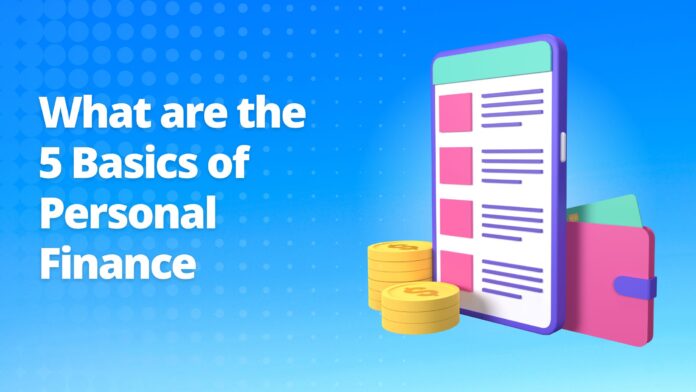The Essence of Personal Finance: Guiding Your Financial Journey
Personal finance, an intricate tapestry woven from the delicate threads of financial decisions and aspirations, plays a pivotal role in our lives. At its core, personal finance encompasses the management of one’s financial resources, encompassing income, expenses, savings, investments, and debt.
It is the art of navigating the intricate pathways of money and making informed choices to achieve financial well-being. While personal finance may seem intimidating at first glance, it is essential to recognize its significance in empowering individuals to build a secure future.
Defining Personal Finance
In its simplest form, personal finance refers to individuals’ or households’ management and utilization of monetary resources to meet their present and future financial goals. It involves strategies that encompass budgeting, saving and investing wisely, managing debt responsibly, and acquiring essential knowledge about financial products and services. Personal finance serves as an indispensable tool for individuals to take control of their finances rather than letting money dictate their lives.
The Imperative Nature of Mastering Personal Finance Skills
Mastering personal finance skills is not merely an option but a necessity in today’s complex economic landscape. With economic uncertainty lurking around every corner and unexpected challenges arising frequently, having a solid understanding of personal finance becomes paramount for individuals across all walks of life. By acquiring expertise in this field, people can establish resilience against financial hardships while fostering long-term stability.
Financial literacy empowers individuals with critical decision-making abilities regarding their monetary affairs. It equips them with the knowledge required to make informed choices about spending habits, investment opportunities, and debt management strategies, ultimately leading them on a path toward attaining fiscal independence.
By mastering personal finance skills early on in life or at any stage, you can lay strong foundations for a secure and prosperous future, whether you are just entering adulthood or approaching retirement. In the following sections, we will delve into the fundamental components of personal finance, exploring the importance of budgeting, saving and investing, managing debt responsibly, and enhancing financial literacy.
By embracing these five foundational pillars of personal finance, you will uncover the keys to unlocking financial stability and opening doors to a world of possibilities. So let us embark on this enlightening journey together as we unravel the mysteries behind the basics of personal finance.
Budgeting: The Foundation of Personal Finance
Understanding income and expenses
When it comes to managing personal finances effectively, understanding your income and expenses is paramount. Income refers to the money you earn on a regular basis, which can come from various sources such as a salary, investments, or even rental properties.
It is imperative to have a clear picture of all the inflows into your financial life to accurately assess your financial standing. By comprehending the different sources of income, one can gain insight into how much money is available for budgeting purposes.
On the other hand, expenses refer to the money you spend on various goods and services. Identifying fixed and variable expenses is crucial in categorizing your spending habits.
Fixed expenses are those that remain relatively constant over time, such as rent or mortgage payments, insurance premiums, or any loan repayments. Variable expenses fluctuate depending on your lifestyle choices, including dining out at restaurants, entertainment expenses, or discretionary purchases.
Creating a budget plan
Creating a budget plan serves as the foundation for managing personal finances efficiently. It involves setting financial goals both in the short-term and long-term while allocating funds according to priorities. Financial goals could range from saving for an emergency fund or retirement to purchasing a new property or taking an international vacation.
To create an effective budget plan, it is crucial to allocate funds towards essential needs first – these often include housing costs (such as rent or mortgage payments), food expenditures (groceries), transportation costs (commute or vehicle maintenance), healthcare expenses (insurance premiums), and utility bills (electricity, water). By covering these essential needs within our budget plans, we ensure that we prioritize our basic necessities before indulging in discretionary spending.
Prioritizing savings and debt repayment
Within any comprehensive budget plan should be a keen focus on prioritizing savings and debt repayment. Saving money is essential to personal finance as it acts as a financial safety net for unforeseen circumstances or future investments.
It is recommended to allocate a certain percentage of your income towards savings, with the general rule of thumb suggesting saving at least 20% of your earnings. Debt repayment, particularly high-interest debt, should also be prioritized within the budget plan.
By allocating a portion of your income towards paying off debts such as credit card balances or student loans, you reduce the burden of interest payments and ultimately improve your overall financial health. Setting specific monthly targets for debt reduction can be highly effective in staying on track and becoming debt-free sooner than anticipated.
By understanding income and expenses and creating a comprehensive budget plan that encompasses financial goals, allocation for essential needs, savings, and debt repayment strategies, individuals lay down the foundation necessary to master personal finance effectively. Budgeting is an indispensable tool that clarifies one’s financial situation and empowers individuals to make conscious choices aligned with their long-term goals while maintaining financial security in their day-to-day lives.
Saving and Investing: Building Wealth for the Future
Establishing an Emergency Fund
Life is unpredictable, and unexpected expenses can arise at any moment. That’s why establishing an emergency fund is crucial.
An emergency fund serves as a financial safety net, providing you with peace of mind during challenging times. It acts as a buffer against unforeseen events such as medical emergencies, job loss, or major home repairs.
To determine the optimal amount to save in your emergency fund, it’s generally recommended to aim for three to six months’ worth of living expenses. Start by calculating your essential monthly costs, including housing, utilities, groceries, transportation, and healthcare.
Consider any additional expenses specific to your circumstances. Once you have a total monthly expense figure, multiply it by the desired number of months to arrive at your target emergency fund amount.
Exploring Investment Options
Expanding your financial horizons and building wealth for the future goes beyond saving money systematically; it also involves exploring investment opportunities that can grow your assets over time. While savings accounts provide security but limited growth potential due to low-interest rates, various investment options are available.
One common investment avenue is stocks or equities – shares of ownership in publicly traded companies. Stocks offer potential capital appreciation over time but come with inherent risks due to market volatility.
Another option is bonds – fixed-income securities issued by governments or corporations where investors lend money in exchange for periodic interest payments and eventual return of principal. Real estate presents another avenue for investment diversification.
Properties can appreciate in value while generating rental income simultaneously. However, becoming a landlord entails property maintenance and tenant management responsibilities.
Understanding risk tolerance and diversification is key when exploring investments. Risk tolerance refers to how comfortable you are with taking on potential losses in pursuit of higher returns.
Diversification, on the other hand, involves spreading investments across different asset classes to reduce overall risk. Balancing risk and reward is a fundamental aspect of successful investing.
Building wealth for the future requires saving money and exploring investment opportunities. Establishing an emergency fund provides a safety net for unexpected expenses and should ideally cover three to six months’ worth of living expenses.
When delving into investment options, consider stocks, bonds, and real estate while understanding your risk tolerance and the importance of diversification. By combining prudent saving habits with strategic investing decisions, you can pave the way toward financial security and prosperity in the long run.
Managing Debt: Avoiding Financial Pitfalls
Understanding different types of debt
Debt is integral to personal finance, and understanding its various types is crucial for effective management. Two main categories of debt are consumer debt and investment debt.
Consumer debt refers to money borrowed for personal expenses, such as credit cards, student loans, and mortgages. On the other hand, investment debt involves borrowing money to invest in assets that have the potential to generate income or appreciate in value over time, such as real estate or stocks.
Consumer debt vs investment debt
While both consumer and investment debts involve borrowing money, they serve distinct purposes and come with their own considerations. Consumer debt generally carries higher interest rates compared to investment debt due to its unsecured nature.
Credit cards are a common form of consumer debt that often carry exorbitant interest rates if not paid off regularly. In contrast, investment debts can be considered more strategic because they involve leveraging borrowed funds to potentially generate higher returns.
Types of consumer debt (credit cards, student loans, mortgages)
Credit cards are one of the most prevalent forms of consumer debt used for everyday expenses or larger purchases. Student loans are specifically designed to finance education and can accumulate quickly due to tuition costs and accrued interest over time. Mortgages enable individuals to purchase homes by borrowing money from lending institutions; however, they require careful consideration because they can have long repayment terms with substantial interest payments.
Strategies for managing debt effectively
Creating a repayment plan is essential when managing any type of debt responsibly. Start by assessing your entire financial situation, including income streams and total outstanding debts. Prioritize paying off high-interest debts first while simultaneously making minimum payments on lower-interest ones.
This approach helps reduce the overall interest burden over time. Consolidating high-interest debts is another strategy worth considering.
Debt consolidation involves combining multiple debts into a single loan with a lower interest rate. This simplifies the repayment process and can potentially save money on interest payments.
However, it is crucial to carefully evaluate the terms and conditions of any consolidation offer and ensure it aligns with your overall financial goals. Managing debt effectively is vital to avoid falling into financial pitfalls.
Understanding the different types of debt, such as consumer debt and investment debt, allows individuals to make informed decisions regarding their borrowing choices. Individuals can gradually reduce their debt burdens over time by creating a repayment plan tailored to their financial situation and prioritizing high-interest debts.
Additionally, exploring options like consolidating high-interest debts can offer potential benefits by streamlining payments and reducing overall interest expenses. By implementing these strategies for debt management, individuals can gain control over their finances and work towards achieving long-term financial stability.
Financial Literacy: Educating Yourself for Success
Importance of Financial Literacy
Financial literacy is the cornerstone of personal finance. It is the foundation upon which informed financial decisions are built.
Without a solid understanding of basic financial concepts, individuals may find themselves making hasty and ill-informed choices that can have long-lasting consequences on their financial well-being. Financial literacy empowers individuals to take control of their finances, make wise investment decisions, and plan for a secure future.
Gaining Knowledge about Personal Finance Concepts
To become financially literate, one must familiarize themselves with essential personal finance concepts. This includes understanding budgeting, saving and investing, managing debt, insurance policies, retirement planning, and more. By educating oneself about these fundamental concepts, individuals can make informed decisions about how to allocate their resources effectively to meet financial goals.
Understanding Financial Products and Services
In addition to grasping personal finance concepts, it is crucial to understand various financial products and services available in the market. This knowledge enables individuals to differentiate between different types of bank accounts (savings or checking), grasp the intricacies of credit cards (interest rates and fees), comprehend insurance policies (coverage options and deductibles), and evaluate investment opportunities (stocks or bonds), among others. By thoroughly comprehending these products and services, individuals are better equipped to choose options that align with their unique financial needs.
Resources for Improving Financial Literacy: Recommended Books, Websites, Podcasts
Fortunately, there are abundant resources available for those seeking to improve their financial literacy. Books such as “Rich Dad Poor Dad” by Robert Kiyosaki or “The Total Money Makeover” by Dave Ramsey provide practical advice on managing money effectively and achieving financial independence. Websites like Investopedia offer comprehensive information on various personal finance topics, making it a valuable resource for self-education.
Podcasts such as “The Money Guy Show” or “ChooseFI” offer insightful discussions on personal finance strategies and tips. By utilizing these resources, individuals can expand their financial knowledge and gain the tools necessary to make sound financial decisions.
Conclusion
Financial literacy is an essential skill to cultivate in today’s complex world. By understanding personal finance concepts, individuals can make informed decisions regarding budgeting, saving, investing, and managing debt.
Familiarity with financial products and services further equips individuals to navigate the intricacies of the financial landscape. Fortunately, numerous resources, such as books, websites, and podcasts, can aid in enhancing one’s financial literacy.
With dedication and a commitment to continuous learning, anyone can become financially literate and pave their path toward a prosperous future. Remember: empowerment through knowledge is the key to unlocking your full financial potential!
Dive deeper into your financial journey with our Introduction to Personal Finance, where we unravel the complexities of managing your money with ease and confidence. If you found the 5 Basics of Personal Finance enlightening, this article will further illuminate the path to financial freedom, inviting you to explore strategies and insights that resonate with your unique financial goals. Join us as we navigate personal finance essentials, turning knowledge into power and aspirations into achievements.










